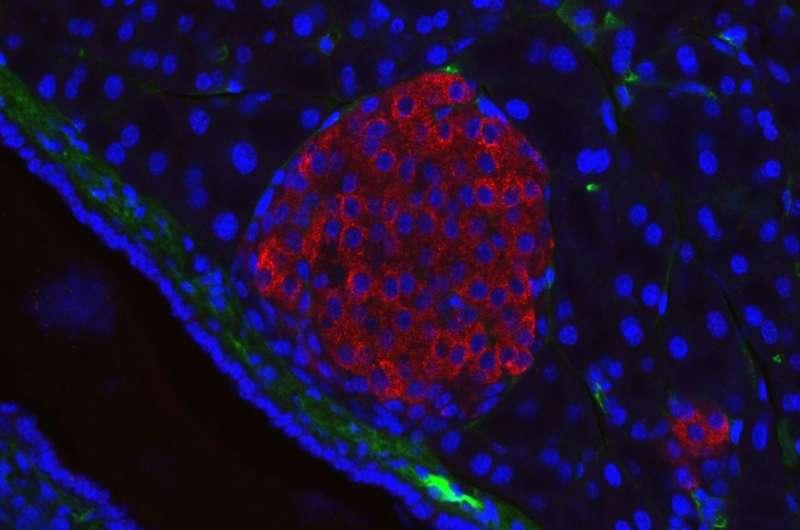
A study led by MedUni Vienna (Institute of Cancer Research and Comprehensive Cancer Center Vienna) sheds light on the mechanisms that lead to extremely aggressive metastasis in a particular type of pancreatic cancer, the basal subtype of ductal adenocarcinoma. The results contribute to a better understanding of the disease. The study has recently been published in the leading journal Gut.
The most prevalent form of pancreatic cancer, pancreatic ductal adenocarcinoma (PDAC) is usually divided into two subtypes, a classical subtype and a basal subtype. The latter is highly aggressive and tends towards early metastasis. One of the distinguishing features between the two subtypes is that the classical subtype exhibits the protein GATA6. This is no longer present in the basal subtype, while the protein DeltaNp63 can be detected in this type.
The study team led by Paola Martinelli found that the switchover of the cancer cells from the classical to the basal type occurs in two stages: First, GATA6 is lost, but this is not yet sufficient for the expression of DeltaNp63. Only after the concomitant loss of two additional proteins, transcription factors HNF1A and HNF4A, does DeltaNp63 emerge and the tumor switch to the aggressive form.
Source: Read Full Article





